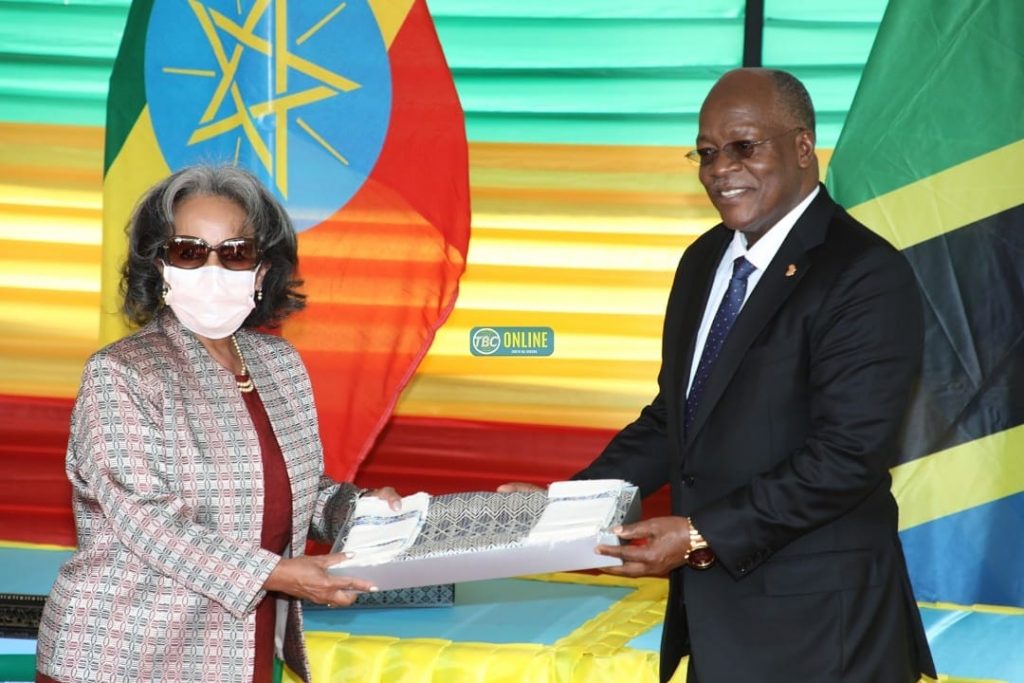Right from the days of African independence to the turn of the 21st century, developed countries’ economic engagement with developing countries was largely limited to the provision of humanitarian and development aid. The start of the new millennium witnessed a shift as traditional donor countries began to focus on boosting African development via increased trade. In the past decade, this dynamic has changed once more, with an increased emphasis on facilitating private investment into African economies.
The United States’ Prosper Africa initiative, launched in 2018, has put additional attention on facilitating bilateral investment and trade between the US and the continent. In Europe, the UK has pledged to invest a further $4.5 billion in Africa by 2022, and EU countries are now responsible for 40% of all foreign direct investment (FDI) into African markets. Other non-Western countries, including China, India, Turkey, and the United Arab Emirates are not left out, as they have increasingly turned to Africa for investment opportunities as well.
Generally, there’s a need for those who desire to invest in Africa to better understand the nature and range of opportunities on the African continent. This is especially pertinent in today’s global climate where the ongoing impact of COVID-19 has become a major impediment to investment priorities. The United Nations Conference on Trade and Development (UNCTAD)had predicted that FDI inflows to Africa would rise in 2020, on track with trends from 2018 and 2019 when Africa’s FDI inflows increased by 11 per cent to US$46 billion. However, due to the spread of the coronavirus, the continent’s overall FDI inflows to shrank, with investments in energy, travel and tourism mostly hard-hit due to travel restriction and bans.
Though, the impact of the decline is not yet fully known, it is a course of major concern. given that the overall investment landscape across Africa is maturing rapidly, and in ways that are inherently unique to Africa, an appreciation for its nuances is crucial in order to keep up with growing opportunities. Other challenges remain; for example, potential investors and stakeholders across the continent have expressed frustration with seemingly incoherent and often contradictory policies by African leadership on doing business in Africa.
New market- new opportunities
Investments on the continent in the COVID-19 era will surely demands a more sophisticated understanding of each African nation – knowing the difference between Niger and Nigeria, the Democratic Republic of Congo and the Republic of Congo, will certainly be a good start. Yet as a number of key pointers suggest, investors that are willing to learn more about the dynamic and fast evolving continent will quickly be able to move beyond misconceptions, decipher real from perceived risks and identify lucrative opportunities blossoming across the continent.
While more traditional recipients of foreign direct investment on the continent, namely Egypt, South Africa and Morocco, continue to boast attractive returns across automotive, manufacturing and mineral extraction industries, closer examination of the continent will show that a number of ‘newer’ markets – and sectors – are proving to be attractive to global investors. Indeed, progresses in political, economic and legal reform have increased prospects for economic growth and the mitigation of risk often associated with investing in African markets.
Notably, as a landlocked country with considerably less resources than some of its neighbours, Rwanda is looking to position itself as “the Singapore of Africa” through the creation of its Kigali Special Economic Zone and a sophisticated telecommunications sector that has gained the interest of tech giants like Amazon, Facebook and Google. Togo also, has made great strides in ease of doing business, with the World Bank citing it as a top 10 reformer in the world, underscored by calls for additional investment across agribusiness in such industries as cashew and bamboo production. Similarly, Namibia, often referred to as “Africa’s optimist”, attracts foreign investors with a liberal investment framework and a commitment to becoming a global logistics hub, both of which have contributed to increased interest in its high-quality meat production and fishing industries.
Perhaps even more promising is the establishment of the groundbreaking African Continental Free Trade Agreement (AfCFTA), poised to be the world’s largest free trade agreement in terms of participating countries. As an inter-African single market for goods and services it will effectively stimulate production, streamline trade, liberalise tariffs and promote a breadth of promising investment opportunities.
Looking beyond the safari
Perhaps, no prospect is more promising for the future of FDI in Africa then the fact that foreign nationals and members of the African diaspora are increasingly travelling to the continent, largely driven by easing of visa processes, increased travel options and a crave for adventure. While for some parts of Africa remains exotic, unsafe or unknown, those that have spent time on the continent will have seen opportunities beyond the safari and taken note of its business-friendly environment, vibrant city skylines bustling with cranes and construction, tech parks and incubators, world-class restaurants, shopping and buzzing nightlife, all powered by robust service industries and of course, opportunity for growth. In short, global investors are witnessing first hand that perceived risk is greater than actual risk.
Feeling connected to the continent is also critical for investors. Ghana’s successful “Year of Return” national showcase campaign in 2019, marking the 400th anniversary of the arrival of African slaves in America, saw the country welcome hundreds of thousands of visitors, including some big-name celebrities, top tier global media coverage and roughly US$2 billion added to the local economy.
Echoing this believe, Eche Emole, founder and CEO of Afropolitan Group, a San Francisco-based organisation dedicated to establishing meaningful connections between African American diaspora and Africa through music, events and organised trips to the continent, notes:
“A number of investment-minded individuals have travelled with us and found that Africa welcomed them with open arms. These interactions can often lead to investments in key sectors such as real estate, healthcare and education. Our ultimate goal is for African Americans to serve as an informal VC fund for Africa, ideally where the investments are mutually beneficial.”
Both investors and those who are looking for capital on the continent should feel confident knowing that the complexity of investing in Africa, even in the wake of COVID-19, is clearly outweighed by available opportunities.


